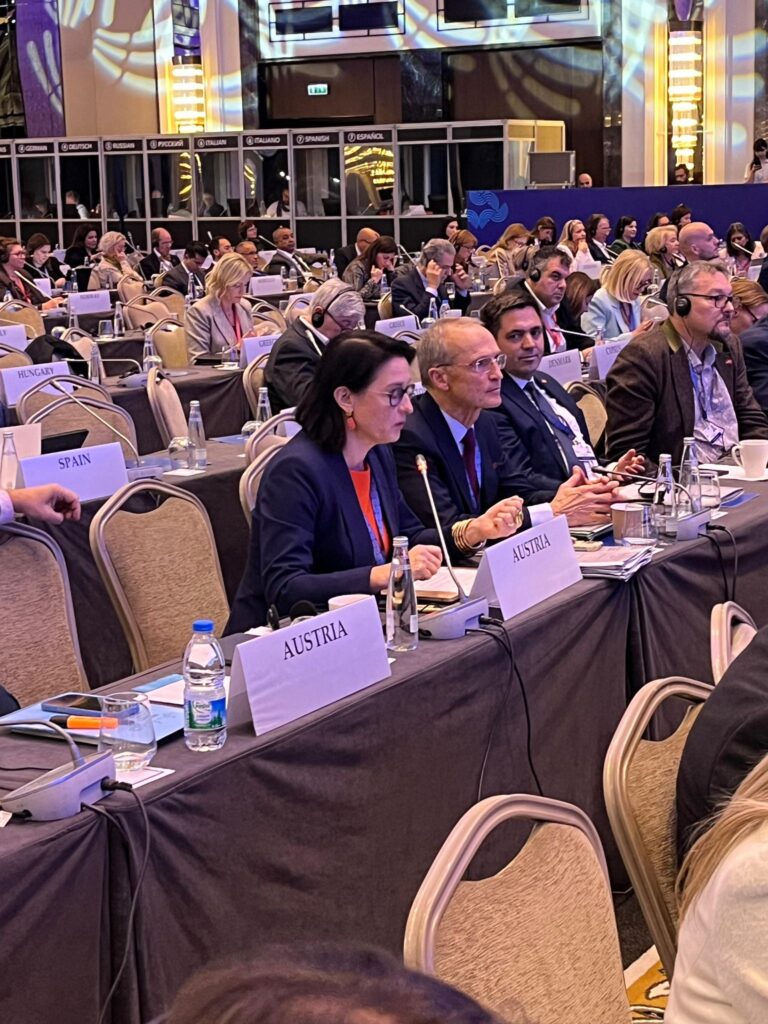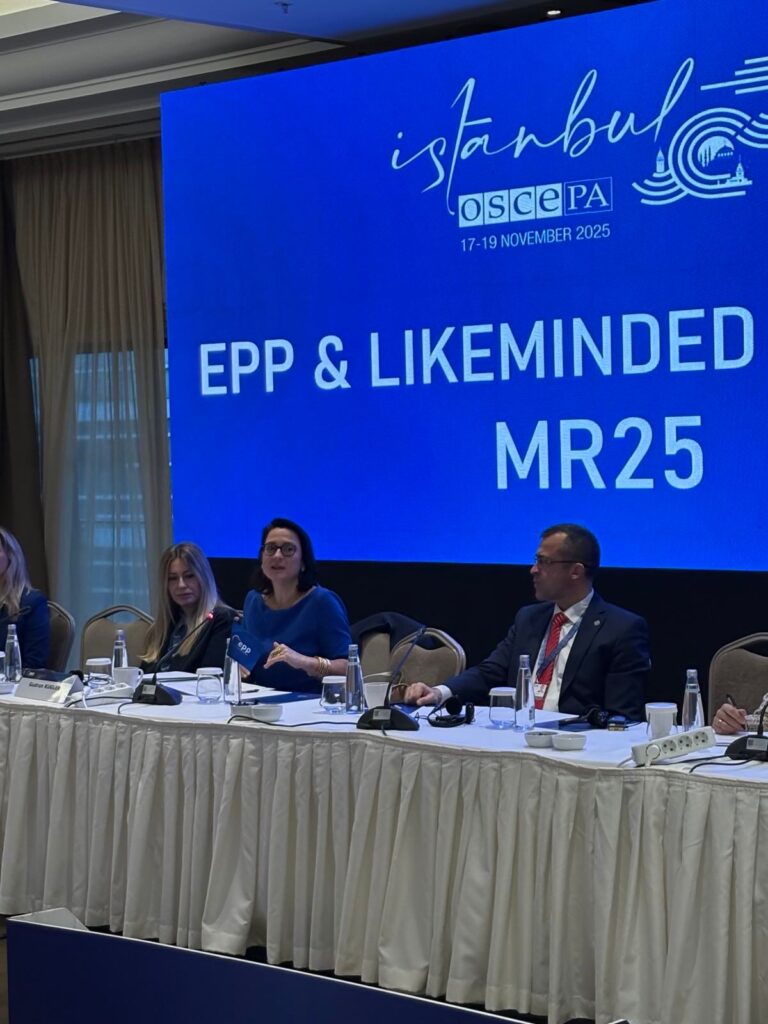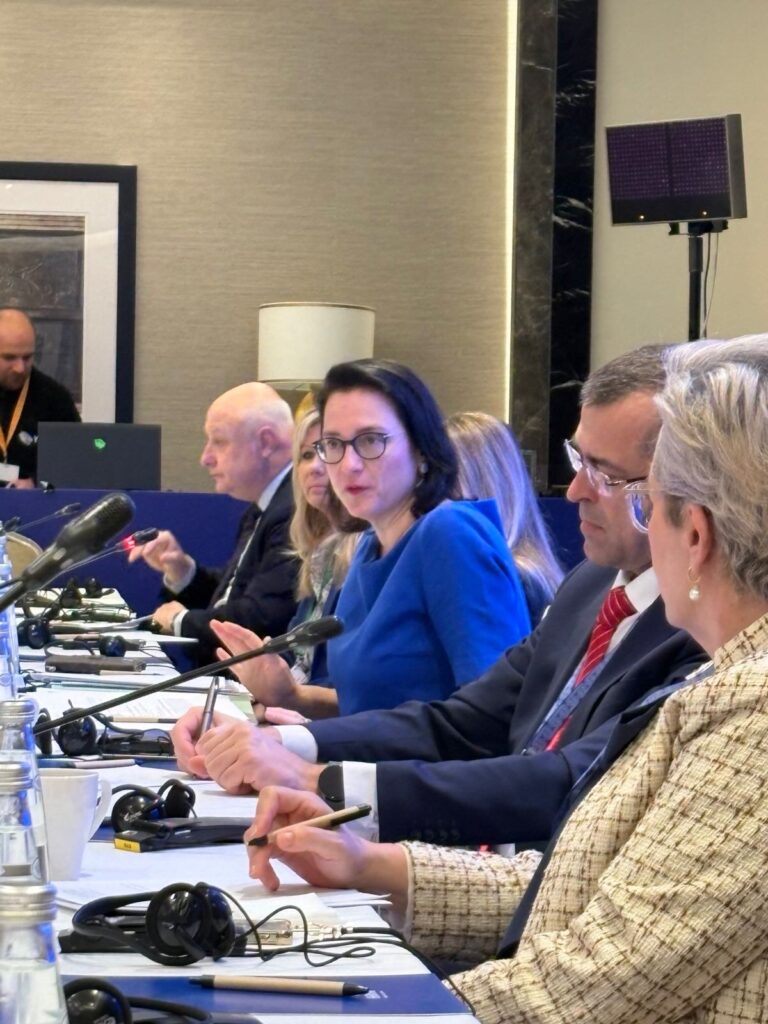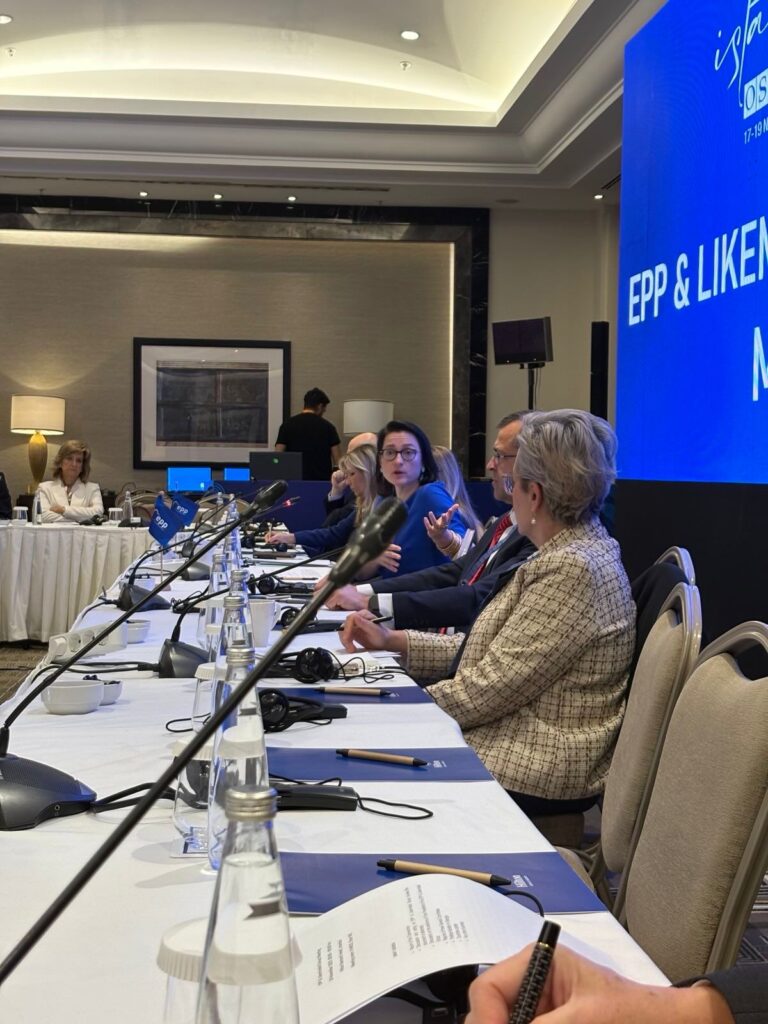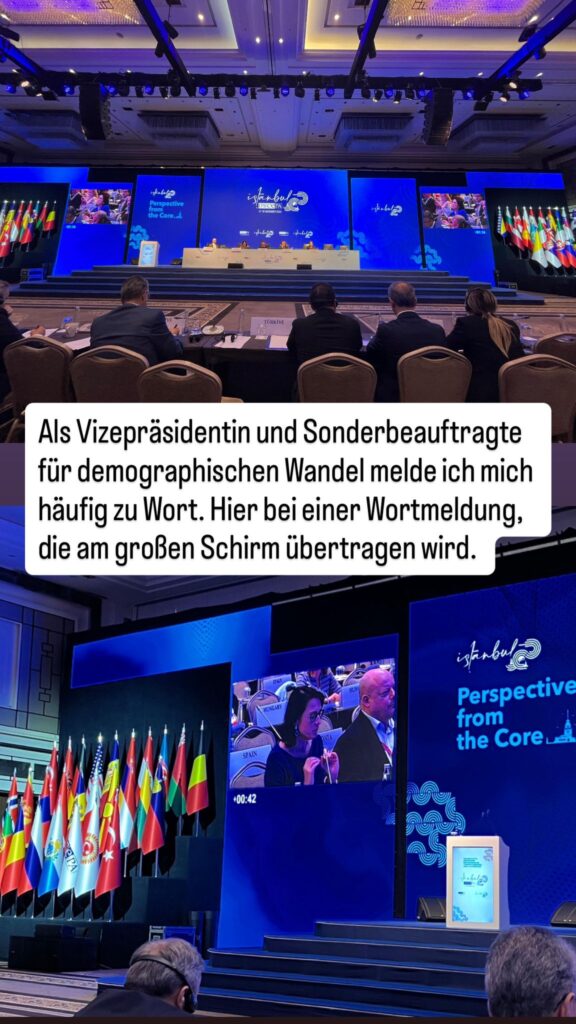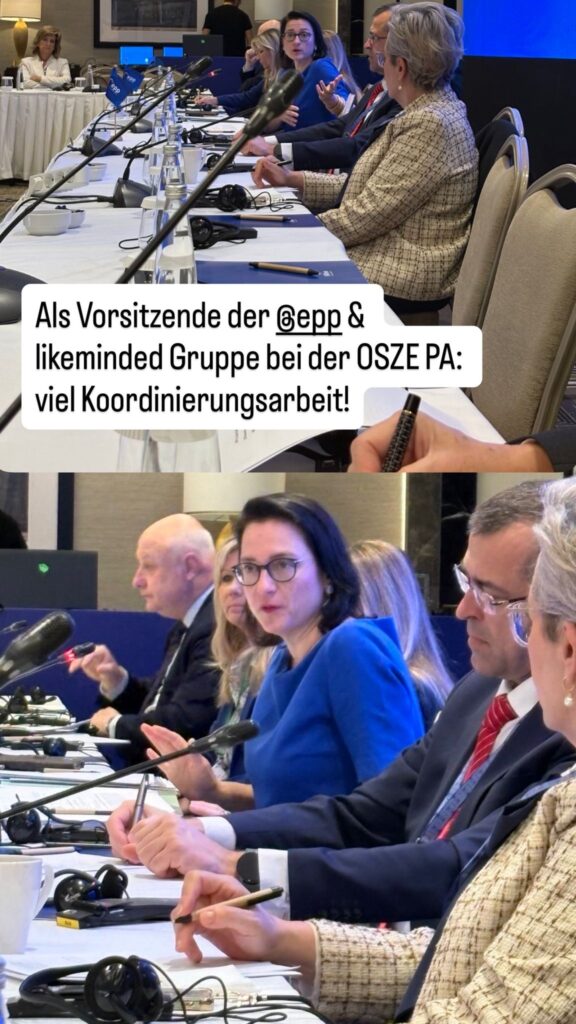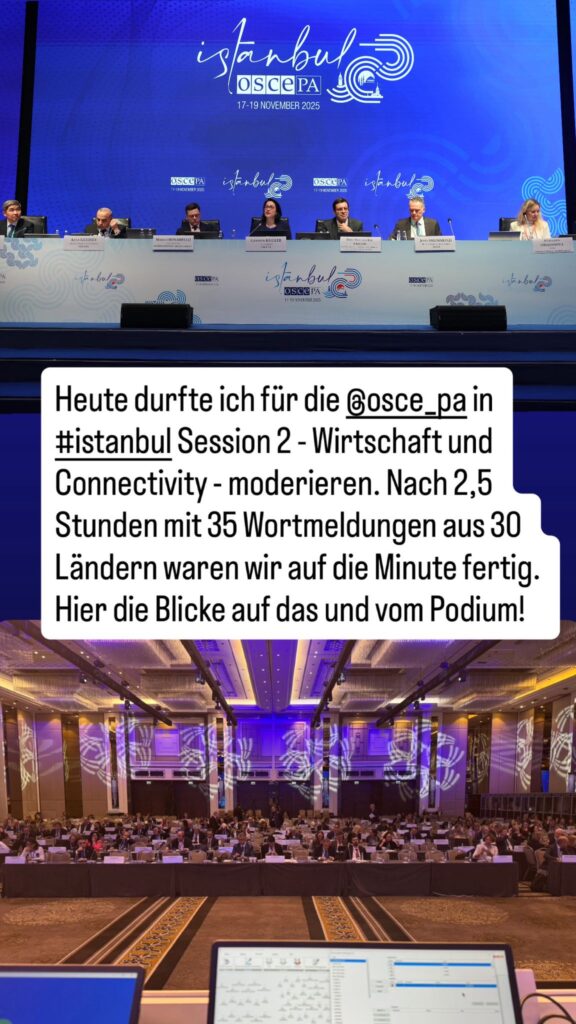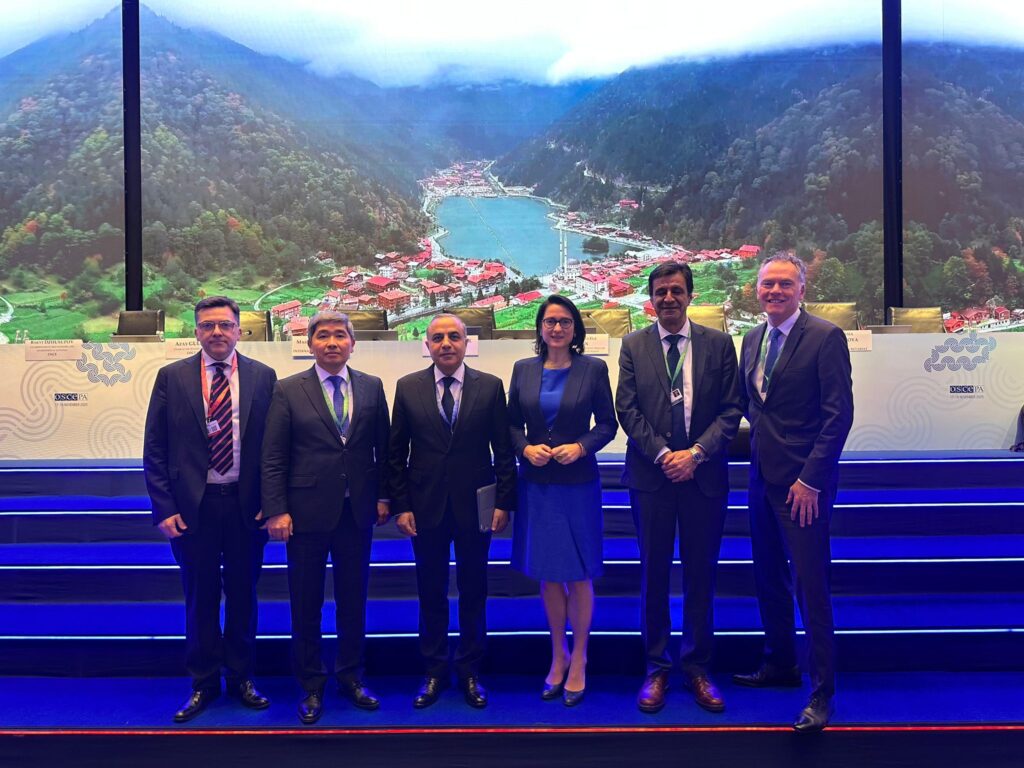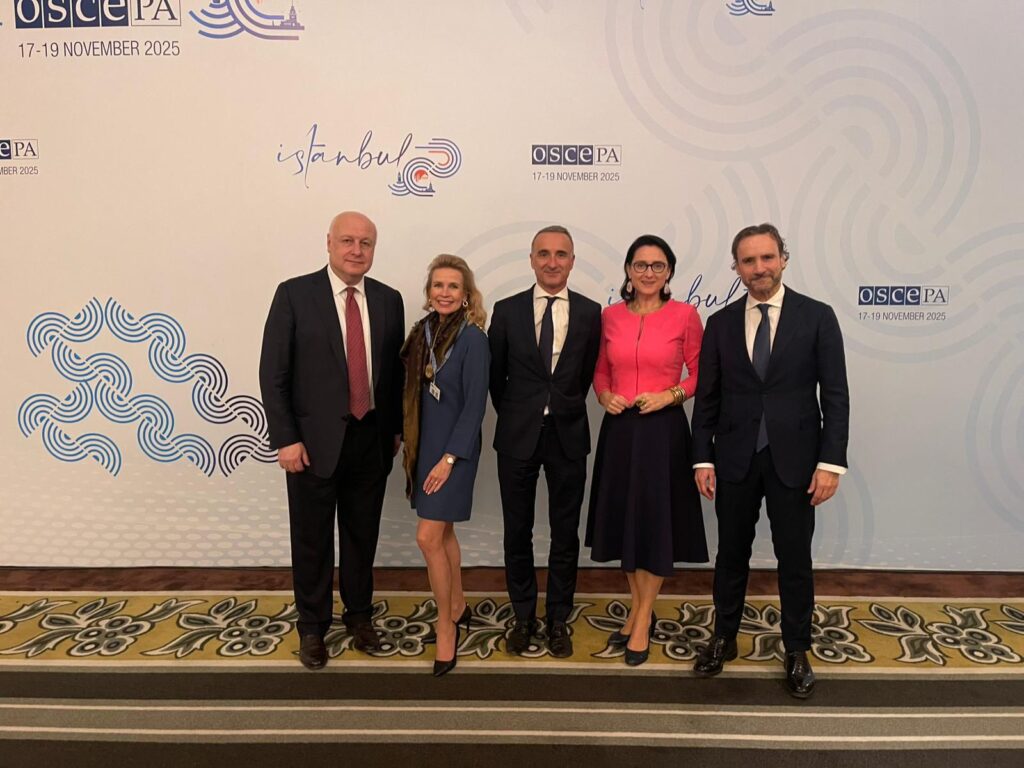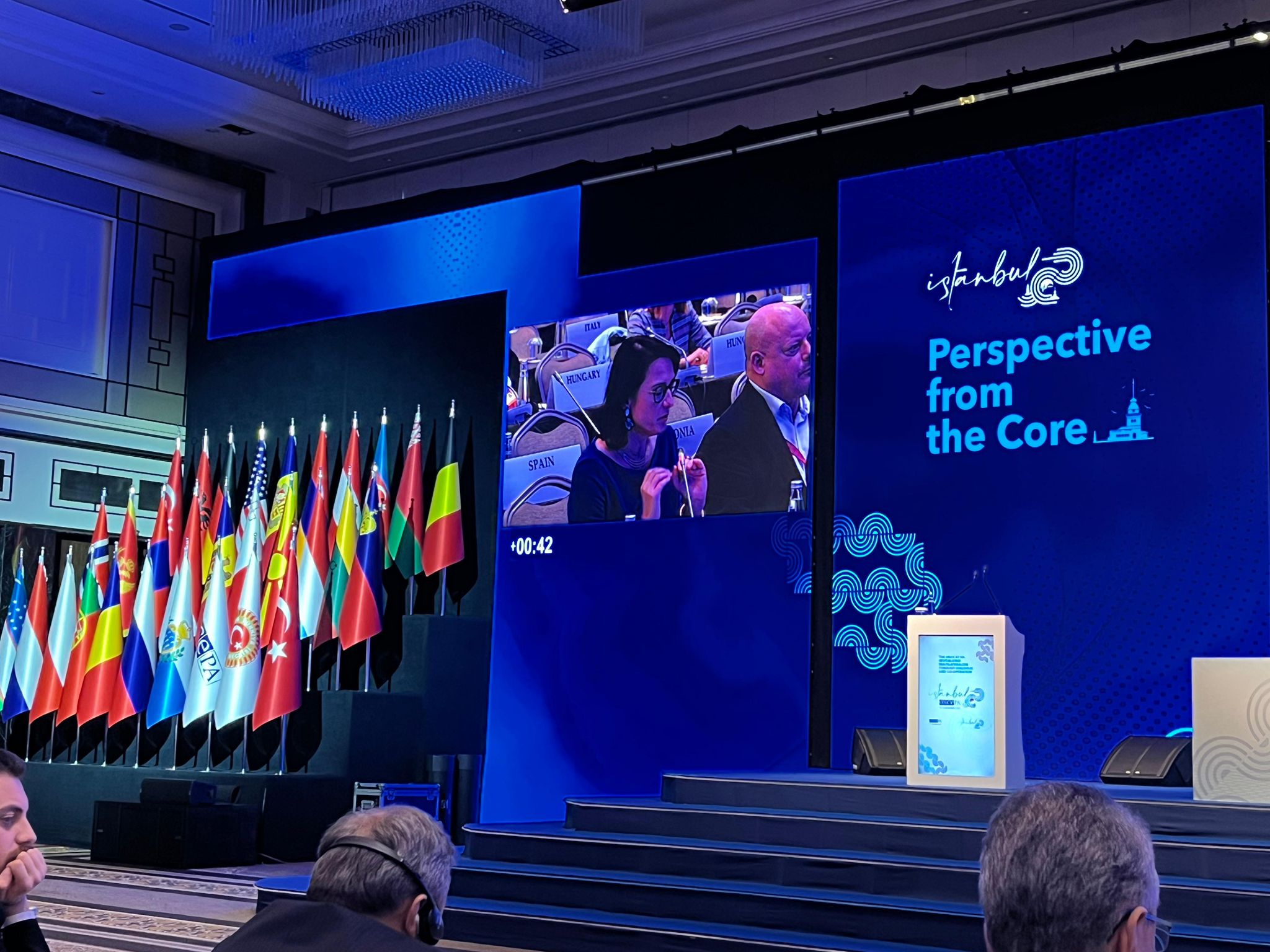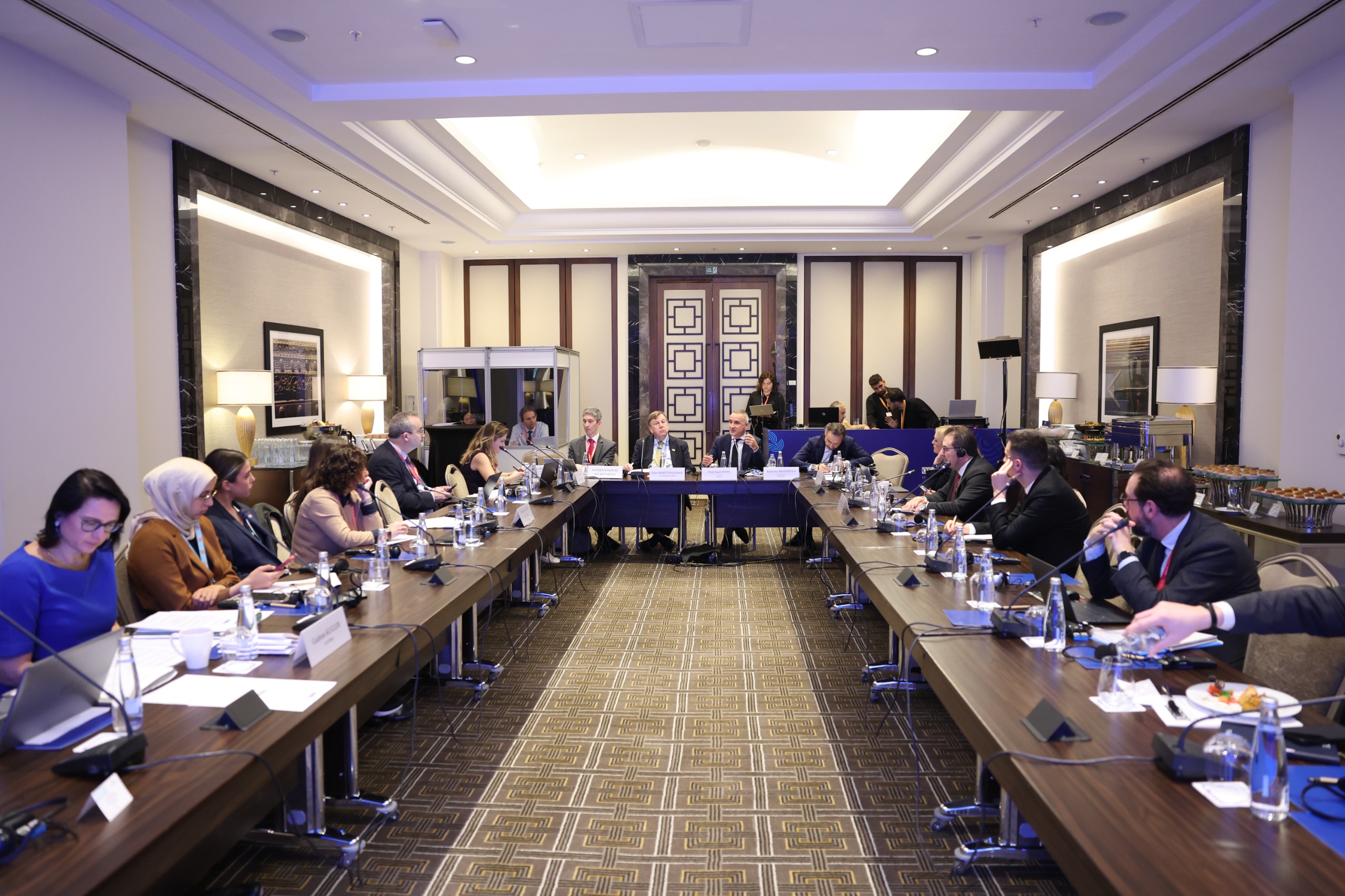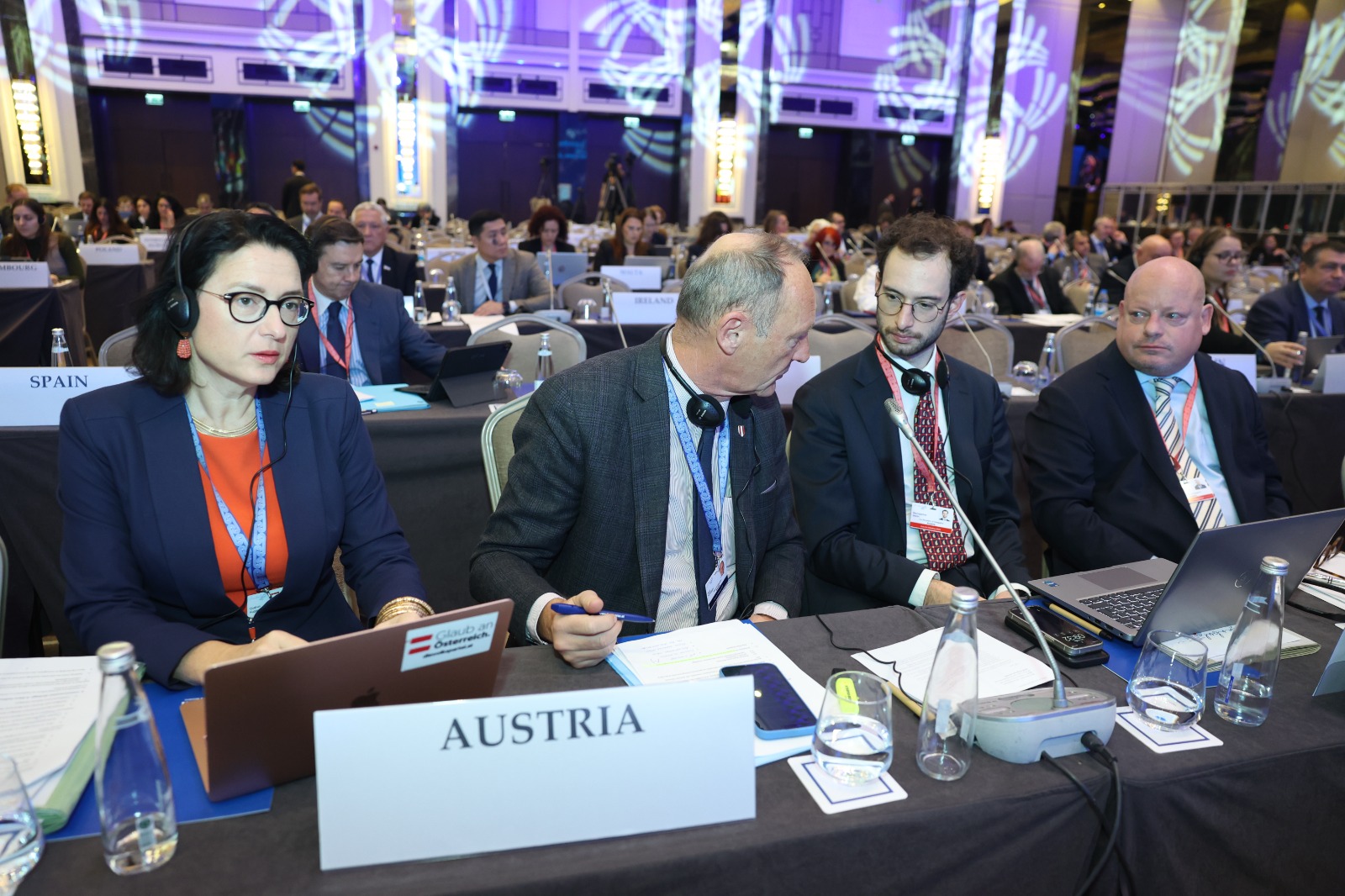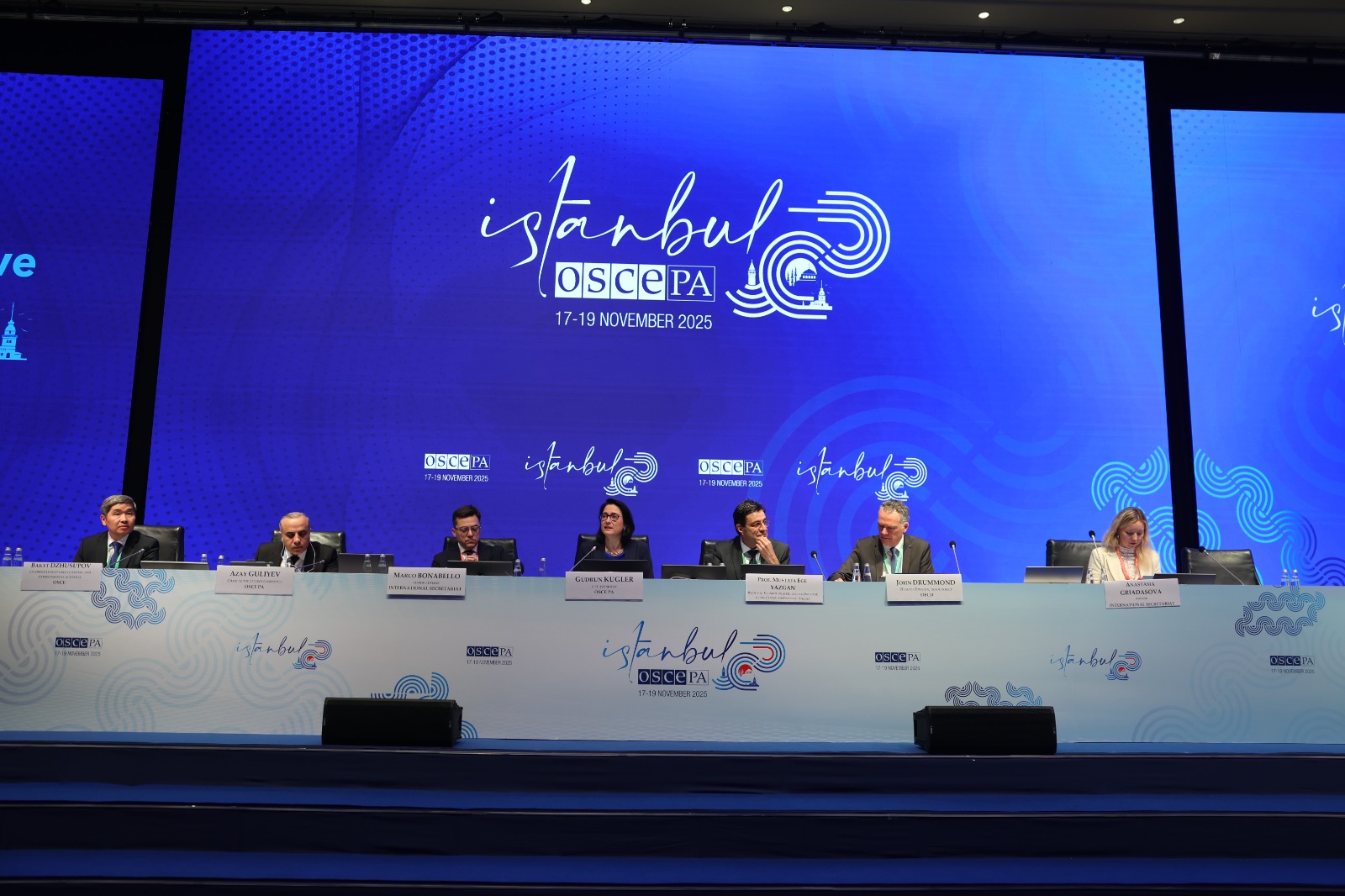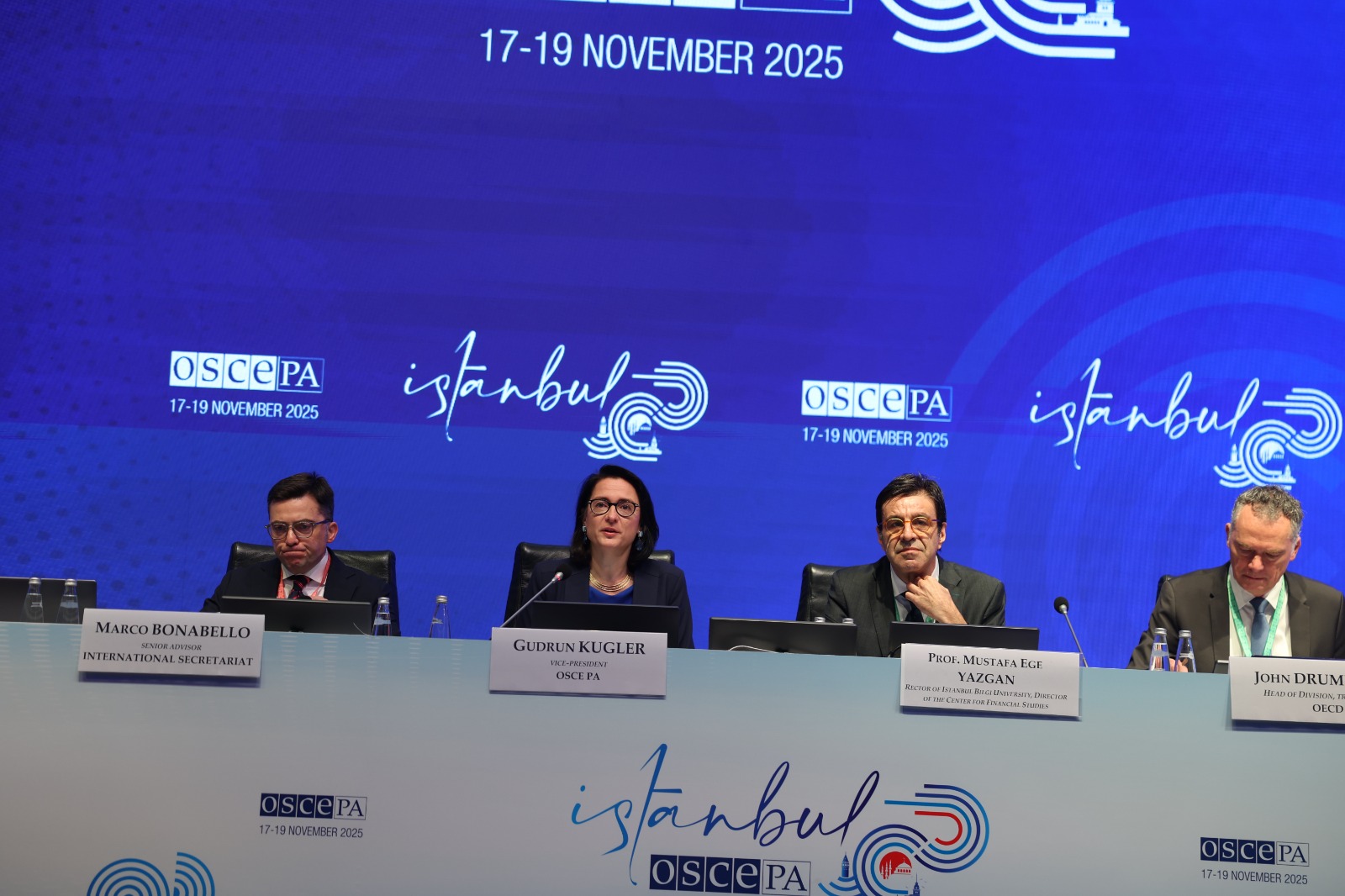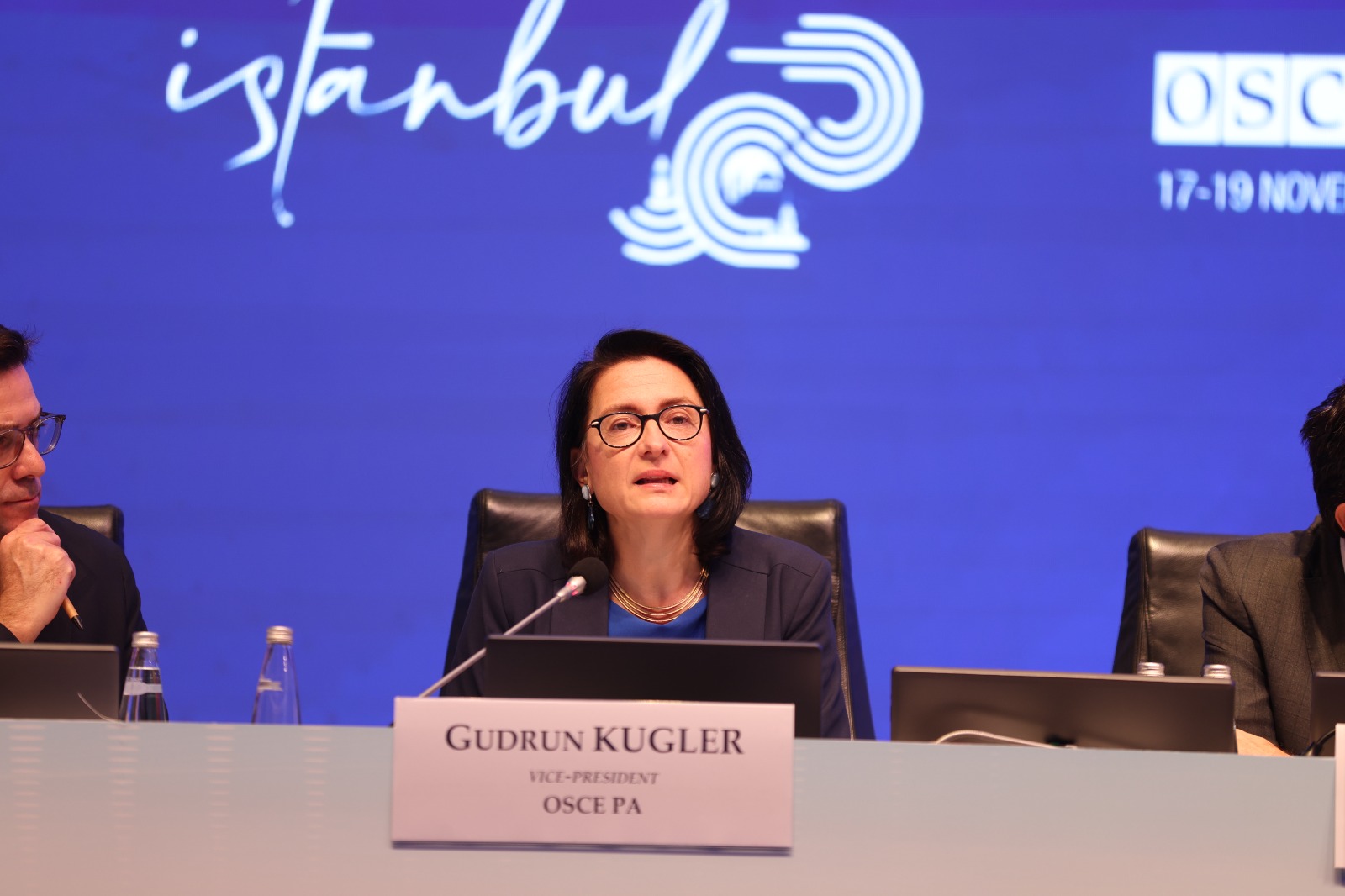Die Herbsttagung der Parlamentarischen Versammlung der OSZE fand von 17. bis 19. November 2025 in Istanbul zum Thema “The OSCE at 50: Revitalizing Multilateralism through Dialogue and Co-operation” statt.
Als Abgeordnete aus Österreich, als Vizepräsidentin der Versammlung, als Sonderbeauftragte für demographischen Wandel und als Vorsitzende der Europäischen Volkspartei („EPP&Likeminded Group“) war ich intensiv im Einsatz.
Im Standing Committee und in Session 1 (Session 1: Bridging Perspectives: Reinforcing Dialogue, Mediation and Trust in an Era of Uncertainty) meldete ich mich zu Wort zur Rolle der Parlamentarier im Rahmen der OSZE.
Session 2 durfte ich moderieren, das Thema lautete “Strengthening Rule-Based Global Trade: Safeguarding Fairness, Connectivity, and Sustainable Growth” – 2,5 Stunden lang, 35 Redner aus 30 Ländern – Punktlandung in Zeit und Inhalt.
In Session 3 – Human Dignity First: Protecting Lives, Upholding Rights, and Supporting Families and Communities – sprach ich über den demographischen Wandel.
Im Gruppentreffen der EVP beschlossen wir überarbeitete Statuten und eine Resolution über die Einschränkungen der Demokratie in Georgien und diskutierten unsere Strategie im Detail.
Im Migration Committee hatten wir Experten aus der Türkei zu Gast und im Rules Committee diskutierten wir Statutenänderungen, wo ich jeden Tagesordnungspunkt im Namen der EVP kommentierte.
Pressemeldung der PV der OSZE: https://www.oscepa.org/en/news-a-media/press-releases/2025/amid-war-and-global-strain-osce-parliamentarians-in-istanbul-insist-that-multilateralism-is-still-the-answer
Im Folgenden einige Auszüge aus meiner Rede in Session 2 (Wirtschaft und Connectivity):
Dear Colleagues, Distinguished Delegates, Ladies and Gentlemen,
When the Helsinki Final Act was signed in 1975, Europe was divided, dictatorships were frequent in the OSCE area, and basic human rights were not guaranteed. The “Helsinki process” and later the OSCE helped to create a shared set of rules – the famous ten principles of the Helsinki Final Act, including sovereign equality, inviolability of frontiers, and economic cooperation.
Security is more than the absence of war and this is shown in the three dimensions – economic dimension is one of them. OSCE has contributed intensely to connectivity in the last 50 years. We can be proud of this.
Today, the 57 OSCE participating States encompass one of the world’s largest groups of market-oriented economies and countries committed to democratic principles and the rule of law.
Yet, we see this region endangered by weaponization energy and grain exports or by the divide-and-rule policies of other countries.
To continue we need to create trust and more connectivity within the OSCE space; more strategic connectivity – by building infrastructure and energy corridors.
We need parliamentary diplomacy and parliamentarians to engage in creating strategic connectivity in our own parliaments.
We need to strengthen regional groups such as the Three Seas Initiative, as well as initiatives in the Danube region, in the Mediterranean, etc.
Populations of Eastern European countries are shrinking already. Western countries will follow soon – Austria’s population for example will shrink from the year 2040. This has major consequences and will undermine the socio-economic resilience. It also means that our workforces are shrinking. Globalisation is a fact. Migration too. But competition for workers should not result in “demographic cannibalism”. Brain Drain challenges regional security, while brain circulation enhances it.Connectivity makes cooperation prevail over fragmentation and leads to security and prosperity.
The OSCE Parliamentary Assembly has always emphasized the necessity of rules-based economic interaction and economic cooperation as a fundamental basis for security and peace. Efficient transport routes, reliable digital links, and resilient supply chains will be crucial to sustaining competitiveness and ensuring that our societies continue to thrive.
I thank our speakers for contributing their expertise, and I look forward to a constructive and future-oriented discussion.
Hier Auszüge aus meiner Rede in Session 3 zum Thema “Human Dignity First: Protecting Lives, Upholding Rights, and Supporting Families and Communities”:
Allow me to take the floor as the Special Representative for Demographic Change and Security and speak about Demographics and Supporting Families.
Without the Central Asia Countries, the OSCE region has a birth rate of about 1,5. This is high social costs. As we speak about families today, let me remind you of our OSCE PA Unanimous Resolution, agreed upon in Porto in July 2025. In this resolution, we see a number of recommendations regarding the family:
✔ address declining birth rates and ageing societies, including by implementing family-friendly policies, and by fostering public dialogue that portrays parenthood in a positive way (9)
✔ raise awareness of the impact of delayed parenthood on fertility and to support research and development of strategies
that enable people to have the desired number of children (10)
✔ the promotion of policies to support openness toward larger families (10)
Additionally we need to:
- Mainstream Awareness Across Institutions and Be Ready to Act Across Electorial Cycles
- Instead of Irregular Migration, Lesser and Planned Migration to Support the Workforce, and Get Tough in Integration
- Consolidate Rural Areas, Including Strategic Withdrawal
- Accept and Adapt to Shrinkage
- AI for Increase of Productivity
- Reform Pension and Welfare Systems for Long-Term Financial Sustainability
- More Working Years Through Education Reform
- Support Active Aging and Longevity
Stable demography is a prerequisite for security. Thank you for dedicating a session to family, in which these issues find space. I encourage you to stay vigilant!
